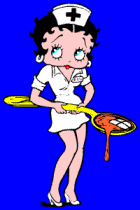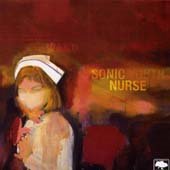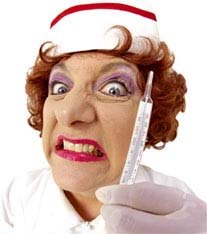August 11th, 2010 by Lucy Hornstein, M.D. in Better Health Network, Health Policy, Health Tips, Opinion
No Comments »

 I like Dr. Rob, the one with the “distractible mind.” And although I thoroughly agree with the stance he takes in his recent post against cholesterol screening in kids, I must take issue with his opening statement:
I like Dr. Rob, the one with the “distractible mind.” And although I thoroughly agree with the stance he takes in his recent post against cholesterol screening in kids, I must take issue with his opening statement:
I have a unique vantage point when it comes to the issue universal cholesterol screening in children, when compared to most pediatricians. My unique view stems from the fact that I am also an internist who deals with those children after they grow up on KFC Double Downs.
From Dictionary.com:
“Unique: existing as the only one or as the sole example; single; solitary in type or characteristics.”
Your med-peds training allows you to follow patients from birth to death (but no obstetrics or gynecology). You can care for all organ systems and all stages of disease (but without as much training in psychiatry). Congratulations! You’ve just (re)invented family practice (except for the above shortcomings). Oh, wait — that’s already a recognized specialty with its own residency programs, boards and everything like that, forty years now.
This misuse of the word “unique” is one of my pet peeves. “Unique?” I don’t think that word means what you think it means. After twenty years in practice, I agree that there probably isn’t much difference between what Dr. Rob does and what I do. After twenty years, I’m not even sure how much relevance remains from our “training.” Still, there remains a great deal of confusion about the very real differences between family practice and med-peds residencies. Read more »
*This blog post was originally published at Musings of a Dinosaur*
May 19th, 2010 by KevinMD in Better Health Network, Health Policy, Opinion, Research
No Comments »

What if some physicians actually like the way primary care is currently practiced? It’s hard to believe, considering the majority of studies suggest marked dissatisfaction among primary care doctors, and an increasing prevalence of physician burnout.
The ACP’s Bob Doherty recently summarized an epic Health Affairs article devoted to fixing primary care. The bottom line was that paying primary care doctors better isn’t enough. The whole field needs to be re-invented. Read more »
*This blog post was originally published at KevinMD.com*
May 5th, 2010 by Toni Brayer, M.D. in Better Health Network, Health Policy, Opinion, Research
1 Comment »

The new healthcare reform law, which is called the Patient Protection and Affordable Care Act (PPACA), will be a huge disappointment to the millions of previously-uninsured people who finally purchase insurance policies when they try to find a doctor.
Primary care physicians are already in short supply and the most popular ones have closed practices or long waits for new patients. Imagine when 2014 hits and all of those patients come calling. Who is going to be available to treat them? Read more »
*This blog post was originally published at EverythingHealth*
June 5th, 2009 by MotherJonesRN in Better Health Network
No Comments »

 I wrote this post a long time ago when I first started blogging. I’m recycling the post because this information bears repeating. I’ve been seeing some behavior lately that is inappropriate, and I’m telling you this stuff for your own good. Please, never roll your eyes at a nurse who is old enough to be your mother. She may be going through menopause, and it could be the last thing that you ever do. Just sayin.’ Don’t make waves at the nurses station.
I wrote this post a long time ago when I first started blogging. I’m recycling the post because this information bears repeating. I’ve been seeing some behavior lately that is inappropriate, and I’m telling you this stuff for your own good. Please, never roll your eyes at a nurse who is old enough to be your mother. She may be going through menopause, and it could be the last thing that you ever do. Just sayin.’ Don’t make waves at the nurses station.
I worked as a neurosurgical nurse many years ago at a teaching hospital in the Midwest, and twice a year a new crop of interns descended upon our unit. It was the best show in town. The spectacle began with the chief of neurosurgery, Dr. Holier Than Thou, strutting on to the unit with his entourage marching behind him. He stood before the crowd in his impeccable white lab coat, telling everyone within earshot of his importance, and how he held the power of life and death in his hands. I would sit at the nurses station and snicker at the biannual parade, and remembered my first day in the hospital as a nursing student. Two interns had asked me to go into a patient’s room to get a set vitals signs. They didn’t tell me that the patient was cold, stone dead. I walked into the patient’s room, saw the dearly departed, and calmly walked back to the nurses station to find the interns laughing their fannies off. I told them they were going to make damn good doctors one day, but first they had to learn what rigor mortis looked like. Nonetheless, because every new group of interns looked like lambs being lead to slaughter, I pitied them, and I gave them information to use as a survival guide. These are the rules I taught them about working with nurses.

1) Nurses deserve respect. We are with the patients twenty-four hours a day, seven days a week, while doctors are only able to see patients a few minutes a day. Smart interns forge alliances with the nursing staff, and understand that nurses can save their butts when something goes wrong with one of their patients.

2) Don’t take the last piece of pizza in the nurses lounge unless you are invited to do so. Nurses are territorial about food.

3) Nurses do not tolerate interns with a budding God complex. Nurses have no problem calling arrogant interns every hour on the hour for Tylenol orders, especially at night. Arrogance breeds contempt.

4) Don’t be stupid. If you want to complain about nursing care, be careful when you approach a nurse who is working the last half of a double shift. Refer to rule #3.

5) Nurses are your friends. We want to see you succeed, and if we like you, we will make sure that Dr. Holier Than Thou doesn’t find out that you order Demerol 1000 mg, instead of 100 mg, IM q 4 hours PRN because you were dead on your feet after being on call for three days in a row.

*This blog post was originally published at Nurse Ratched's Place*
 I like Dr. Rob, the one with the “distractible mind.” And although I thoroughly agree with the stance he takes in his recent post against cholesterol screening in kids, I must take issue with his opening statement:
I like Dr. Rob, the one with the “distractible mind.” And although I thoroughly agree with the stance he takes in his recent post against cholesterol screening in kids, I must take issue with his opening statement:



















